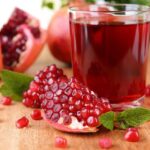## The Nutritional Value of Loach, the “Ginseng of the Water”
Loach is not just a popular ingredient in rustic dishes, but it is also highly regarded for its nutritional value and exceptional health benefits.
In Traditional Chinese Medicine, loach is known as the “ginseng of the water” due to its abundance of nutrients beneficial to our health.
Loach is packed with essential nutrients and has been proven to support cardiovascular health, boost the immune system, and prevent various diseases.

Loach is Rich in Protein
According to the Food and Agriculture Organization of the United Nations (FAO), loach has a high protein content, providing essential amino acids that help the body maintain and develop tissues.
Nutrition experts also highlight that loach is easy to digest, offering long-lasting energy, especially beneficial for those recovering from illnesses or in need of muscle nourishment.
A study published in the American Nutrition Journal found that the protein and amino acid composition in loach can enhance endurance and protect the body from intense physical activity-induced damage.
This is particularly important for individuals engaged in strenuous labor or the elderly aiming to bolster their health.
Reduced Risk of Cardiovascular Disease
Loach is abundant in unsaturated fats, particularly omega-3 fatty acids. These are heart-healthy fats. The American Heart Association (AHA) affirms that omega-3-rich fish like loach help lower bad cholesterol (LDL) and triglyceride levels in the blood, thereby reducing the risk of cardiovascular diseases.
Moreover, modern medical research indicates that individuals who incorporate omega-3 from loach and other freshwater fish into their diets have a 15% lower incidence of cardiovascular disease compared to those who do not consume omega-3.
Scientists assert that omega-3 can help diminish the likelihood of blood clot formation and prevent the buildup of plaque in arteries.

Lower Risk of Osteoporosis
Loach is an excellent source of iron, calcium, and phosphorus. Iron prevents anemia, while calcium and phosphorus are crucial minerals for bone development and protection.
According to the National Institute of Nutrition, consuming calcium- and phosphorus-rich foods like loach strengthens bones and lowers the risk of osteoporosis, especially in older adults.
A diet rich in calcium and phosphorus can reduce the chances of developing osteoporosis by up to 20%. These minerals work together to build a robust skeletal framework and decrease the risk of fractures in the elderly.
The Power of Pomegranate Juice: Unveiling Surprising Benefits and Why You Should Not Miss Out!
The health benefits of drinking pomegranate juice are extensive and well-documented. This ancient fruit has been revered for its medicinal properties and is now recognized as a powerful health booster. With its unique blend of antioxidants, vitamins, and minerals, pomegranate juice offers a wealth of advantages for those seeking a natural approach to wellness. Discover the many ways this super juice can enhance your health and well-being.








































